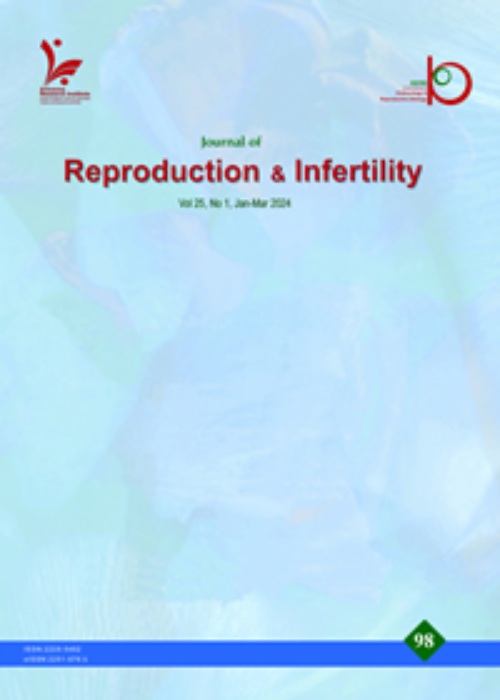Effects of Laptop Computer's Electromagnetic Field on Sperm Quality
Author(s):
Abstract:
Background
Laptop computers are known sources of electromagnetic field and as the name implies a number of people use these computers frequently on their laps. To date, there seems to be only reports on the thermal effects of these devices on spermatogenesis in a laptop position. This study aimed to investigate the bioeffects of electromagnetic fields induced by laptop computers on rat spermatogenesis after blocking its thermal effects.Methods
Thirty inbred Wistar rats (200–250 g) were randomly divided into a control and three experiment groups. The magnetic field strength of the lap-side of a computer was measured (in an upside down position) at different areas by using a TES 1390 EMF tester and marked it with an appropriate marker. The maximum magnetic field strength was 1.15 µT. Animals in the test groups (21) were kept on the marked area on a thermal shield 7 hours a day for one week. The controls (9) were kept on a switched-off laptop for the same period. Subsequently, the animals were sacrificed and sperm parameters such as count, motility and morphology were analyzed. Non-parametric tests such as Mann Whitney U and Kruskal-Wallis tests were used to compare the results between the experimental groups and the controls.Results
A significant and correlated decrease was seen in sperm motility parallel to the increase in the magnetic field. Sperm motility was divided into four groups (A to D), A exhibiting the highest and D the lowest motility. The relative frequency of group D sperms (immotile sperms) exposed to background, moderate, high and very high magnetic fields were 17%, 31%, 29%, and 68% and the relative frequency of sperm in class C sperms (non-progressive sperms) exposed to background, moderate, high and very high magnetic fields were 52%, 43%, 51% and 16%, respectively. After merging sperms in classes C and D, the relative frequencies of sperms in animals exposed to the background, moderate, high and very high magnetic fields were 69%, 74%, 80% and 84%, respectively. Although, the lowest sperm count was observed in animals exposed to the highest magnetic field but this difference was not significant.Conclusion
There seems that sperm count and motility decrease as the magnetic field strength increases. In this light, magnetic fields induced by laptop computers may decrease sperm count and sperm motility, ultimately affecting male reproductive capabilities. It is advisable to limit the time these devices are used in a laptop position.Language:
Persian
Published:
Journal of Reproduction & Infertility, Volume:11 Issue: 4, 2010
Page:
251
magiran.com/p805244
دانلود و مطالعه متن این مقاله با یکی از روشهای زیر امکان پذیر است:
اشتراک شخصی
با عضویت و پرداخت آنلاین حق اشتراک یکساله به مبلغ 1,390,000ريال میتوانید 70 عنوان مطلب دانلود کنید!
اشتراک سازمانی
به کتابخانه دانشگاه یا محل کار خود پیشنهاد کنید تا اشتراک سازمانی این پایگاه را برای دسترسی نامحدود همه کاربران به متن مطالب تهیه نمایند!
توجه!
- حق عضویت دریافتی صرف حمایت از نشریات عضو و نگهداری، تکمیل و توسعه مگیران میشود.
- پرداخت حق اشتراک و دانلود مقالات اجازه بازنشر آن در سایر رسانههای چاپی و دیجیتال را به کاربر نمیدهد.
In order to view content subscription is required
Personal subscription
Subscribe magiran.com for 70 € euros via PayPal and download 70 articles during a year.
Organization subscription
Please contact us to subscribe your university or library for unlimited access!


